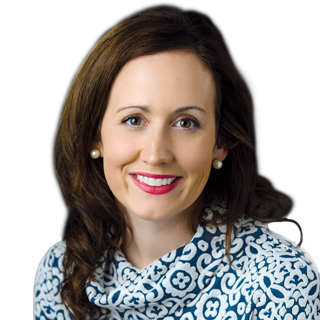
October 1 was a day … I struggle to select the appropriate adjective to describe it appropriately. However, I would say we could all agree it was a long day. Especially when one wakes up at 1:23 a.m.
What did I think in that moment? (Other than, “WOW! I love when I wake up and see the clock at cool chronological times like 1:23!”)
What did I contemplate next? I wondered if Centers for Medicare & Medicaid Services SNF Team Leader John Kane is up? Seriously, my half-delirious self-conscious pondered this. Did he stay up until midnight and watch the miraculous shift? Was he worried that all the computer systems would crash, just like people feared before Y2K? And I also thought, I hope he is celebrating the jubilant shift to PDPM with visions of person-centered IPAs to come.
These dreams, however, we would all soon see, would be directly impacted by what the industry did to truly prepare their communities for the implementation of the Patient Driven Payment Model.
My workday on Oct. 1, naturally, persisted well into the evening. I enjoyed the rush of spending a day in the office responding to questions from communities and therapy teams alike.
“What is the date range again for GG scores associated with ARD for IPA?”
“When set-up assist is required to cut meats with meals, is that considered a modified diet for K0510c2? Or is that only applicable to coding Self-Care Eating?”
“Section C is not capturing high level cognitive impairments. Suggestions?”
“We are hearing there is some ‘glitch’ in the grouper tool. Any idea when those will be resolved?”
“Can you send me that guide again that shows which surgeries impact Section J coding?”
“Section “I” dysphagia codes are only for cerebrovascular dx correct? Do we still continue to follow coding principles and add R series even though they are return to provider?”
“I know we need to follow the definition of ‘usual performance’ … but we are really concerned about all of the variance seen across shifts?”
At some point, mid-evening, I totally neglected the fact it was way past dinner time and my kiddos were … well, hAngry!
Embarrassingly, the only reason I realized that I needed to nourish the crew occurred when I was sitting on my porch typing and I saw a DoorDash employee approaching my front door. I peeked around the corner to see my eldest child take the bag, go back inside, and lock the door.
That child then proceeded to serve all his siblings.
Yes, PDPM Day at the Kinder home was celebrated courtesy of Buffalo Wild Wings.
Personally, I passed on the sodium-filled delicacy — anything that comes in a “Dash,” I told the kids, was sure to result in heartburn and swelling.
Then I began to ponder these questions: Were my internal training efforts leading into PDPM too much to digest? Did I “Dash” through essential content?
Breathe, Renee, and add to your running Q-and-A document.
It is time to take training from macro to micro focus. Small bites of information, finely chopped from the hands of a sous chef. Let’s be grateful that people are asking questions, after all.
An hour or so passed, and I was at the point of D-O-N-E with email, and then I heard my little bit Emmy yelling, “MaaaaMY, MAAAAMY, MAMMY, MAMMY, MAMMY.”
“What is it Emmy?”
“MAMMY!”
“Yes, Emmy what is it?”
“Come here I have something to show you!” she exclaimed.
Mind you, our kids are the world’s absolute best at stalling at bedtime.
My general response when they try to bring up some new topic past 8 p.m. is that it is too late for any new conversations. This rule is right up there with, “No questions in the morning before Mommy has consumed two cups of coffee.”
But today was different. I had been so engrossed in work that the kids deserved some extra TLC — especially Emmy Grace, her being the baby and all.
As I entered the kitchen, she squeals in absolute joy, “SURPRISE!” while holding a salad.

A salad she had made, just for me.
My tiniest sous chef had cut lettuce, broccoli and carrots, and even chopped green onion.
“I knew you wouldn’t eat wings,” she said, “so I made you this.”
“Do you like it, Mommy?”
The obvious response after a long day was to bawl, which I did, and then I snapped a sweet picture of her holding the treasure.
Small, easy to consume, bites of information are what the field will need now.
We should encourage the curiosity to dissect and devour the information provided to us within the RAI Manual and updates provided to us from CMS on its website, in its training materials, and in its Q and A documents.
Take the time to enhance, tweak and review your policies, internal practices, clinical pathways, outcomes and updated meeting structure.
No more Dashing! Time to evolve our practices to a level of refinement. Sous chef style.
Renee Kinder, MS, CCC-SLP, RAC-CT, is Vice President of Clinical Services for Encore Rehabilitation and 2019 APEX Award of Excellence winner in Writing–Regular Departments & Columns category. Additionally, she serves as Gerontology Professional Development Manager for the American Speech Language Hearing Association’s (ASHA) gerontology special interest group, is a member of the University of Kentucky College of Medicine community faculty, and is an advisor to the American Medical Association’s Relative Value Update Committee (RUC) Health Care Professionals Advisory Committee (HCPAC).




